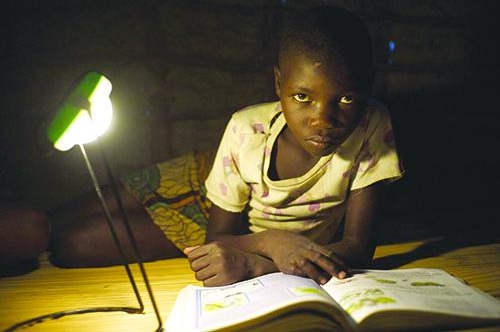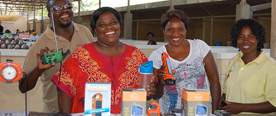STEVE FELTON

EARTH Hour is coming. Every March the WWF engages the world – 196 countries and over 7 billion people – to think about energy, conservation, and how we can all fit on the planet without stripping it of its resources: how we can leave some over for the next generation.
Earth Hour is this Saturday, 29 March.
It all started in Sydney, Australia in 2007, when 2.2 million residents participated by turning off non-essential lights for an hour in the evening. All at once the city was dark. Everybody could see the wonder of the night sky, and think for an hour about just how much electricity we use, and the coal and nuclear power stations needed to produce it. In 2008 more countries took part, and by 2013 most of the world was switching off for an hour for the sake of the environment.
Now if you live in Ngonga, a tiny village in Zambezi Region, and somebody asks you to turn off the lights for an hour, you might look a bit confused. There is no electricity in Ngonga. In fact, over 75% of Namibians do not have access to electricity. So instead of switching off the lights for an hour, it is worth thinking about how to bring light to rural Namibia without using power stations.
When night falls, many people light up a candle. But every candle costs 3 or 4 dollars, and every year many homes are burnt down due to accidents. The fumes from candles and paraffin lamps are also unpleasant
That’s where Earth Hour comes in. This year Nedbank’s Go Green has donated N$45,000 to provide solar lighting to schools in the north of Namibia as an Earth Hour initiative.
Lying on the floor of her mother Anna Mulisa’s hut is Nyazo Mushekwa. She’s in grade 3 at Ngonga Primary. The solar powered light gives all the light she needs to do homework. Her mother loves it too – she can find things at night, including scorpions.
The light is distributed by Elephant Energy, a non-profit organization that is rolling out solar powered lights, starting with 4 schools in Zambezi in March, and more throughout the year across other areas of Namibia without access to power.
For Earth Hour, Nampower has promised to match Nedbank’s funding to bring solar lighting to Namibian schools.
If candle lasts three hours and costs N$3, over five years candle light would cost more than N$5 000. A light powered by the sun, costing just N$250, can give clean, safe light for five hours every evening.
Elephant Energy plans to sell lights almost at cost to households across Namibia, but many people cannot afford N$250 at one go for a solar lamp.
But for every problem there is a solution. Organisations like the Shack Dwellers can save together and give credit to members, and Elephant Energy sells ‘Divi-Lights’ that take two kinds of charge: one from the sun, and a cash recharge rather like telephone credit.
Once the credit is paid off the light is ‘freed’ for use, needing only the sun to charge it.
Access to cheap, off-grid electricity is going to change things for rural Namibians, who will be able to read at night, charge phones and run computers where there are no power lines.
That’s a bonus for Earth Hour.
- See more at: http://www.namibian.com.na/indexx.php?id=11064&page_type=story_detail



No comments have been posted.